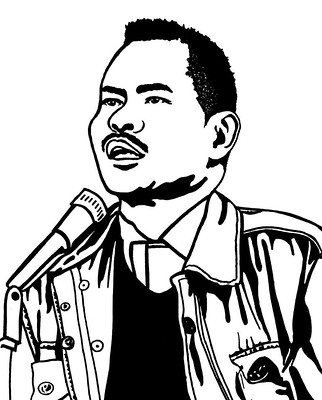Summary | Excerpt | Reading Guide | Reviews | Beyond the Book | Read-Alikes | Genres & Themes | Author Bio

This article relates to Everything We Never Had
 Everything We Never Had by Randy Ribay explores the lives of four generations of men in the Maghabol family. The family's patriarch, Francisco, leaves the Philippines to seek work in America in the 1920s. Francisco quickly discovers that the stories he's heard of a country full of acceptance and success for immigrants are fantasies. A combination of harsh working conditions and racial prejudice pushes him to become a strike organizer. Although Francisco's role in the Filipino American agricultural worker strikes along the West Coast in the 1960s is fictional, the strikes themselves are not.
Everything We Never Had by Randy Ribay explores the lives of four generations of men in the Maghabol family. The family's patriarch, Francisco, leaves the Philippines to seek work in America in the 1920s. Francisco quickly discovers that the stories he's heard of a country full of acceptance and success for immigrants are fantasies. A combination of harsh working conditions and racial prejudice pushes him to become a strike organizer. Although Francisco's role in the Filipino American agricultural worker strikes along the West Coast in the 1960s is fictional, the strikes themselves are not.
Filipino immigrants began arriving in the United States in the 1920s and '30s, drawn by the promise of plentiful work and good pay. During this time, American law severely restricted immigration from Asian nations in general, but as the Philippines were a US territory, there were no limits on the number of Filipinos that could enter the country. In the early decades of the 20th century, around 100,000 men arrived on the shores of America's West Coast, only to be met by a wide range of racist and discriminatory laws and practices, low wages, and poor working and living conditions. The Filipinos of this initial wave became known as "manongs," a term of endearment and respect meaning "older brothers" in the Ilocano dialect of the northern Philippines. It was the manongs who began pushing for equal pay and better working conditions, organizing and leading agricultural workers' strikes.
One such manong was Larry Itliong. Itliong arrived in the US in 1929 and began organizing workers soon after. By 1965, he had helped create the Agricultural Workers Organization Committee (AWOC). That summer, Itliong led AWOC members in a strike in California's Coachella Valley when the grape harvest began. The growers soon complied with demands, giving the workers a 40₵/hour wage increase, promising better working conditions, and dropping charges against strikers who had been arrested. Riding high on their success, the AWOC decided to try again, moving north with the grape harvest to Delano. On September 8th, 1965, all the Filipino workers refused to work in the vineyards.
The strike in Delano immediately met with opposition from the growers, who physically assaulted workers and shut off power and water to their camps. Growers also attempted to hire Mexican immigrants to work in place of the Filipinos. Itliong and the AWOC reached out to Cesar Chavez, who was then the leader of the National Farm Workers Association (NFWA), comprised predominantly of Mexicans. Itliong's appeals prompted Chavez and the NFWA to join the strike less than two weeks after it began. The two organizations eventually merged into the United Farm Workers (UFW), and although the conflict that became known as the Delano Grape Strike lasted five years, spawning an international boycott of table grapes, the strikers were eventually successful in getting better pay, working conditions, and benefits for over 10,000 farmworkers.
The Delano Grape Strike proved that cooperation between people of different backgrounds could benefit a greater number of workers, and the UFW continued to better the lives of farmworkers through boycotts, strikes, and marches. Over the years, however, the role of Itliong and the Filipino workers in the Grape Strike has often been minimized or forgotten, with Chavez sometimes getting sole credit for leading the strike and the UFW. Current efforts are underway to obtain wider recognition for Itliong and the manongs, and activists and organizers today continue to use the skills demonstrated by both Itliong and Chavez.
Although Francisco's focus on organizing and leading strikes ruins his relationship with his son, Emil, the approaches showcased in Everything We Never Had reflect the importance of the Delano Grape Strike as well as other strikes throughout the 20th century. Ribay's novel recognizes the role of the Filipino community in helping create better conditions for farmworkers and a legacy of cooperation to accomplish shared goals.
Filipino labor organizer Larry Itliong
Illustration by dignidadrebelde (CC BY 2.0)
Filed under People, Eras & Events
![]() This article relates to Everything We Never Had.
It first ran in the December 4, 2024
issue of BookBrowse Recommends.
This article relates to Everything We Never Had.
It first ran in the December 4, 2024
issue of BookBrowse Recommends.
Your guide toexceptional books
BookBrowse seeks out and recommends the best in contemporary fiction and nonfiction—books that not only engage and entertain but also deepen our understanding of ourselves and the world around us.